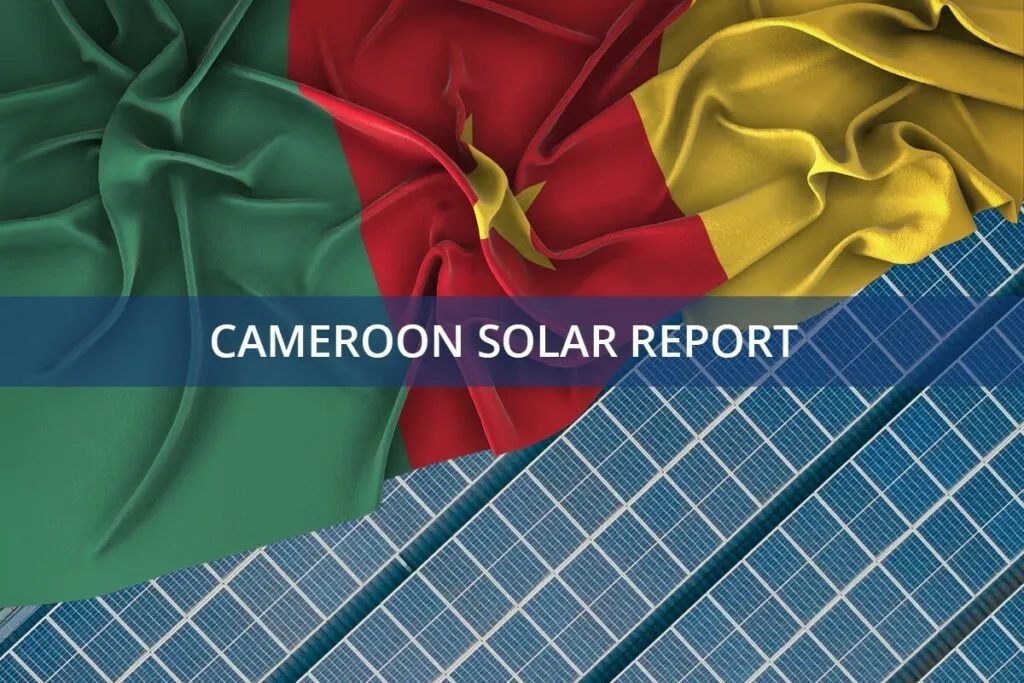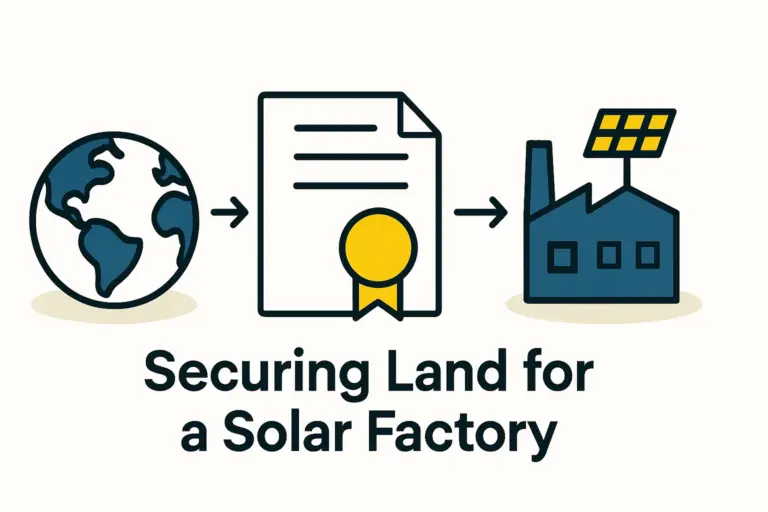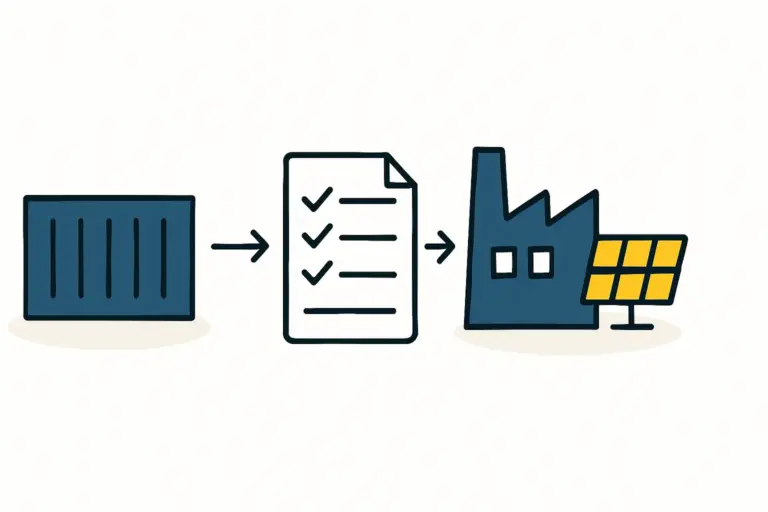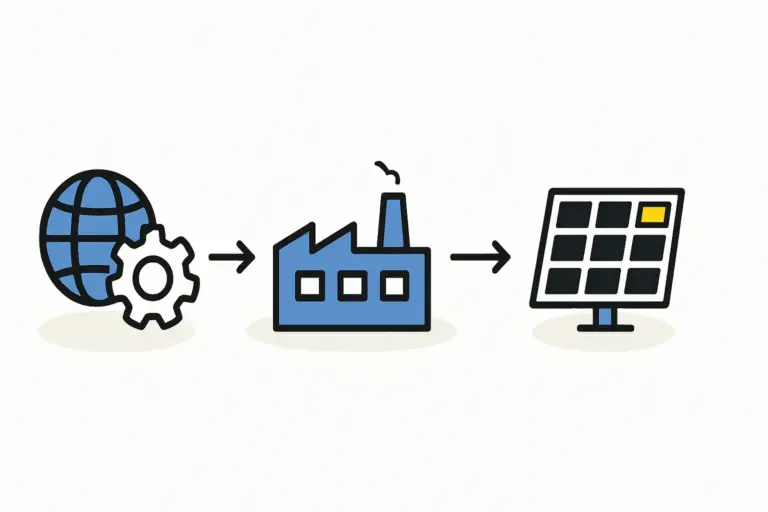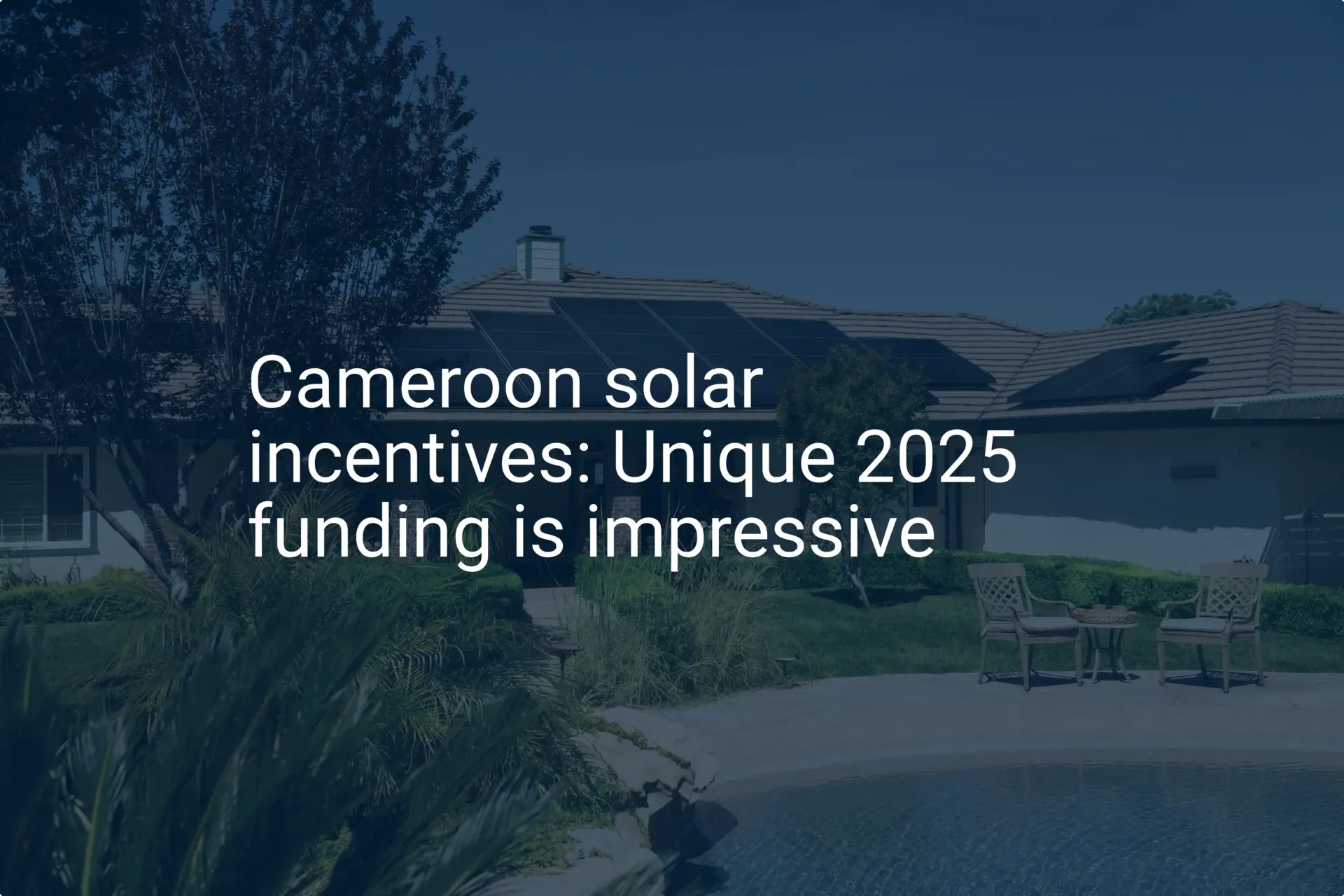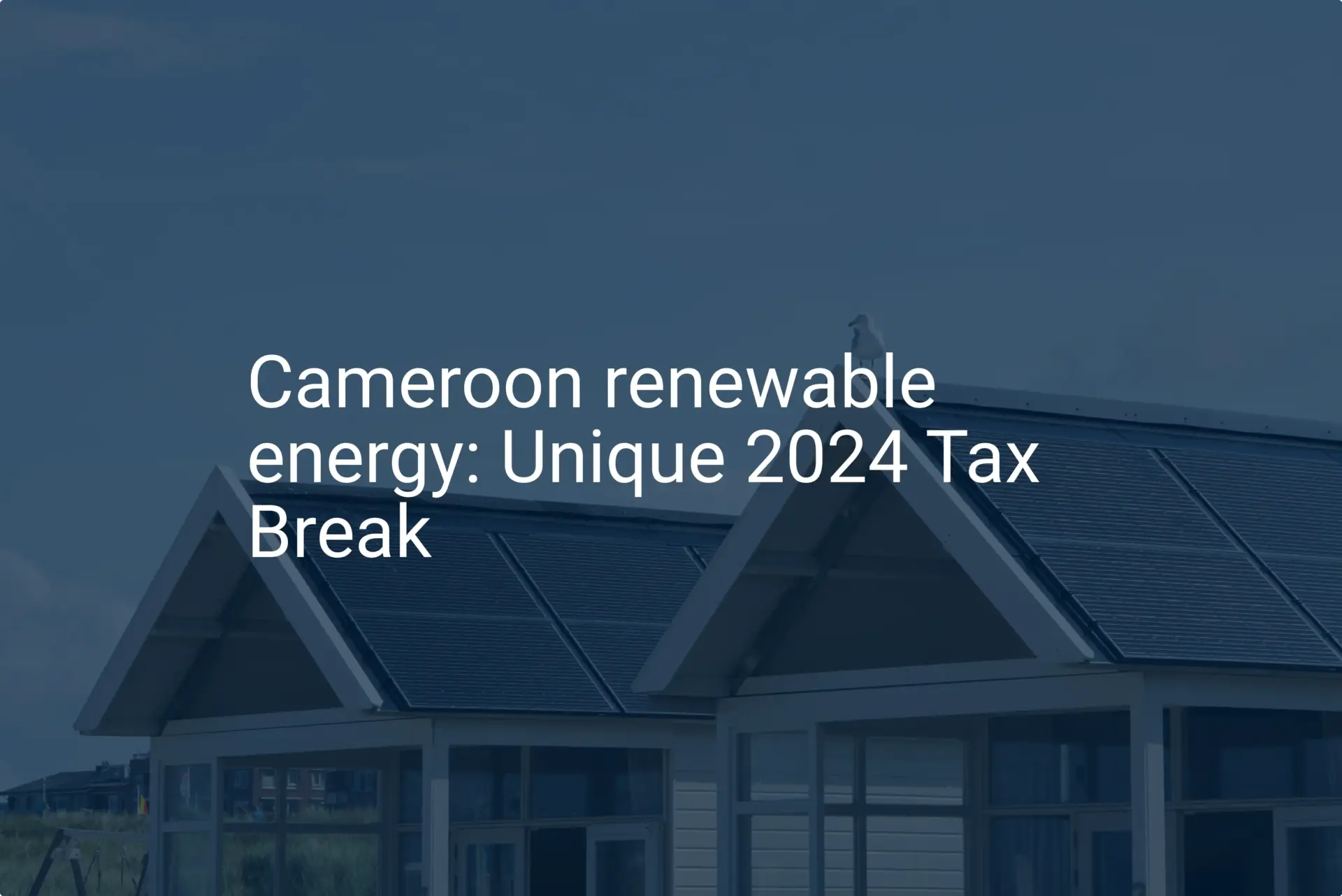When investors evaluate new markets, they often focus on demand, supply chains, and labor costs. However, the local fiscal regime is a critical—though frequently overlooked—factor.
In many emerging economies, government incentives can fundamentally alter a project’s financial viability, transforming a marginal business case into a highly attractive one.
For entrepreneurs considering solar panel manufacturing in Central Africa, Cameroon’s 2013 Investment Code provides a powerful framework of structured tax exemptions designed to attract just this type of industrial investment.
Understanding these provisions is not just an administrative detail but a strategic necessity. The difference between a standard financial projection and one that accurately models these incentives can be the deciding factor in securing funding. This guide breaks down the specific tax and customs benefits available to new solar manufacturers under the code, offering clarity for business planning and financial modeling.
Table of Contents
Understanding the Framework: Cameroon’s 2013 Investment Code
Enacted on April 18, 2013, Law No. 2013/004 aims to promote and attract private investment in Cameroon. Its primary goal is to create a more favorable environment for businesses contributing to national economic growth, particularly through industrialization, job creation, and exports. The renewable energy sector, including solar module manufacturing, is a priority area within this framework.
Crucially, these incentives are not granted automatically. Investors must submit a formal application to the Investment Promotion Agency (IPA), which evaluates each project against the code’s criteria. A comprehensive, well-structured application supported by a credible business plan is essential for approval. The code structures these benefits across two distinct phases: installation and operation.
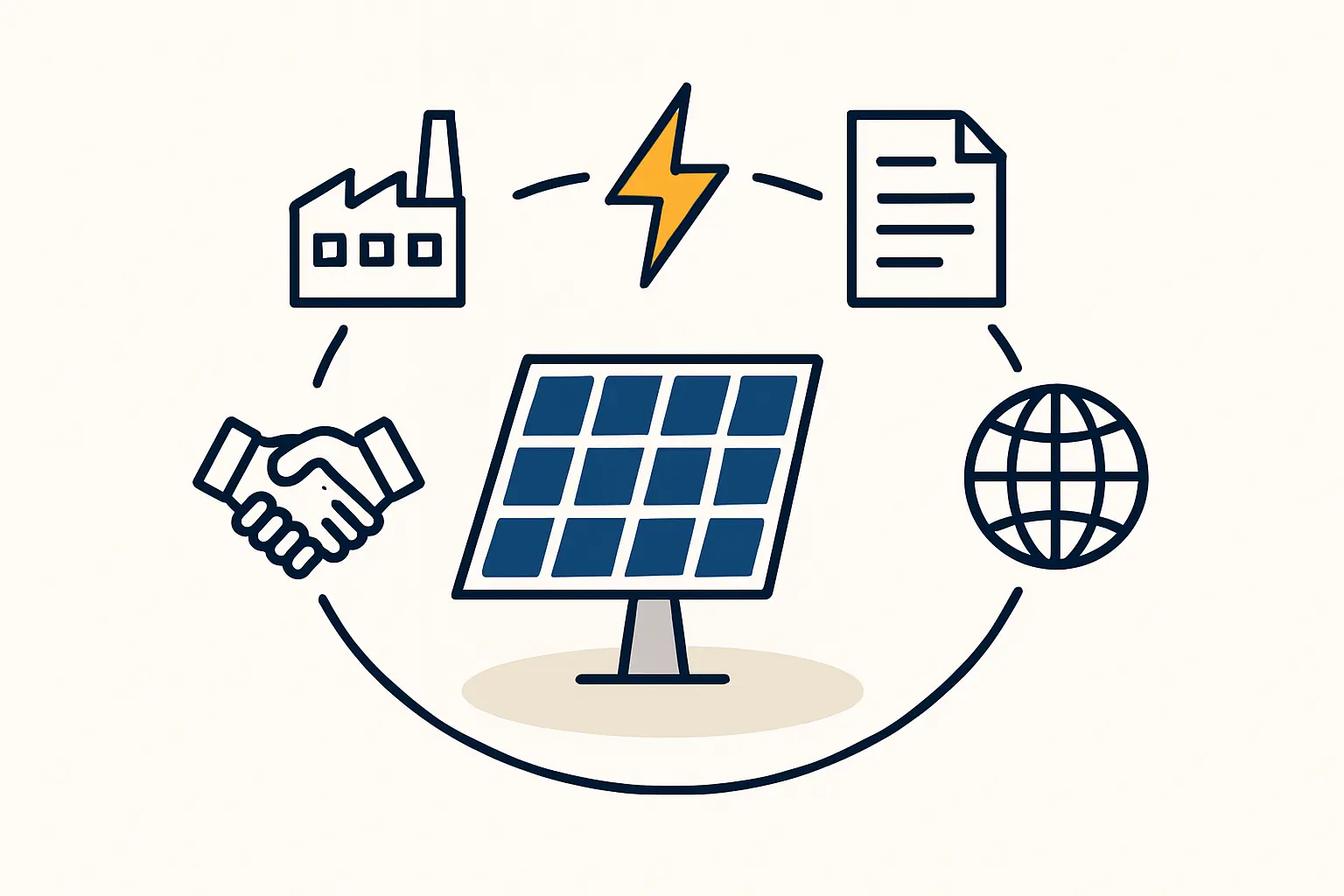
The Installation Phase: Up to 5 Years of Critical Exemptions
The installation phase covers the period when the factory is being built—from company incorporation to the start of commercial production. Lasting up to five years, this is typically when capital expenditure is highest. The 2013 Investment Code provides substantial relief during this critical setup period.
Key benefits during the installation phase include:
- Exemption from Registration Fees: This applies to essential legal acts like company incorporation, capital increases, and property transfers required for the factory.
- Exemption from VAT: Value-Added Tax is waived on imported equipment, materials, and machinery needed for the production line, directly lowering the upfront cost of solar panel manufacturing equipment.
- Exemption from Customs Duties: All imported capital goods, tools, and spare parts are exempt from customs duties, further reducing initial investment costs.
- Exemption from Withholding Tax: Payments for services from foreign contractors, such as technical support during machine installation, are exempt from withholding tax.
- Direct Equipment Removal: Approved investors can directly remove imported equipment and materials from customs, bypassing lengthy and costly warehousing procedures.
For a new solar manufacturer, these exemptions translate into a significant reduction in the initial capital outlay required to build and equip the facility.
The Operational Phase: A Decade of Fiscal Advantages
Once the factory begins commercial production, the project enters the operational phase. Under the code, an approved investment benefits from a wide range of tax exemptions for up to ten years. This long-term fiscal stability is designed to help new enterprises achieve profitability and a strong return on investment.
Key benefits during the operational phase include:
- Exemption from Corporate Tax: The company is fully exempt from paying taxes on its profits for the duration of the incentive period.
- Exemption from Business License Tax: This annual tax, required for all commercial operations, is waived.
- Exemption from Taxes on Dividends: Income from movable assets, including dividends paid to shareholders, is not taxed.
- Reduced Tax Rates: In some cases, a reduced rate may apply to other specific taxes or contributions after an initial exemption period.
- Exemption on Export Duties: All taxes and customs duties on the export of finished solar modules are waived, enhancing competitiveness in regional markets.
These operational benefits can drastically improve a business’s financial performance during its first decade. The extended period of tax relief allows for faster capital recovery, greater reinvestment, and a more robust financial position. Accurately forecasting these advantages is therefore a cornerstone of a successful investment strategy—a principle confirmed by our experience with J.v.G. turnkey projects.
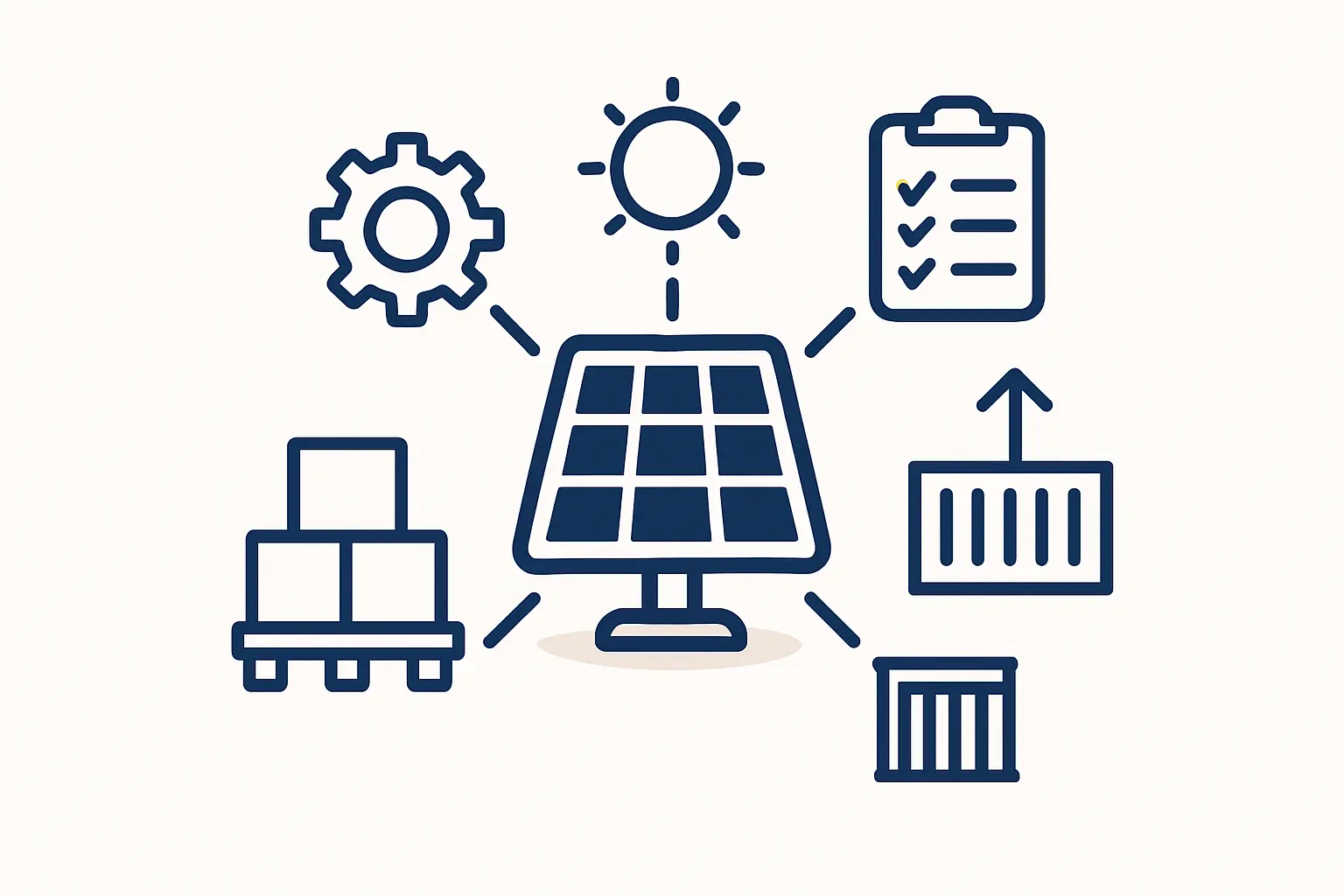
Eligibility and the Application Process
To qualify, a project must be new, create a specified number of permanent jobs for Cameroonian citizens, contribute to the local value chain, and prioritize local sourcing where possible. The application is a formal process managed by the Investment Promotion Agency (IPA).
Investors must submit a detailed file containing the company’s legal documents, a comprehensive business plan, proof of financing, and the project’s technical specifications, including details on the proposed factory building and production technology.
The IPA serves as a one-stop shop to facilitate the process, but a meticulously prepared submission is critical for a timely and positive outcome. For investors new to the region, partnering with an expert in turnkey solar factory solutions can be invaluable for navigating these administrative requirements.

Frequently Asked Questions (FAQ)
Q: Do these incentives apply to the expansion of an existing factory?
A: The code is primarily designed for new investments. However, significant expansion projects involving new technology or a substantial increase in production capacity and job creation may be eligible. The IPA typically assesses these on a case-by-case basis.
Q: Are there specific requirements for the number of jobs created?
A: Yes, job creation is a key eligibility criterion. The exact number depends on the size and nature of the investment and must be clearly detailed and justified within the business plan.
Q: What happens after the 10-year operational phase ends?
A: Once the incentive period expires, the company transitions to Cameroon’s standard tax regime. Financial models must account for this shift by projecting standard corporate tax and other duties from the eleventh year onward to ensure long-term sustainability.
Q: Can a fully foreign-owned company access these benefits?
A: Yes, the law is designed to attract both domestic and foreign direct investment. A 100% foreign-owned entity can apply for and receive the full benefits of the Investment Code, provided it is registered as a Cameroonian company and meets all other eligibility criteria.
Conclusion: Integrating Incentives into Your Strategic Plan
Cameroon’s 2013 Investment Code offers one of the most structured and advantageous fiscal regimes for new industrial projects in Central Africa. For any entrepreneur planning to establish a solar module manufacturing facility, these incentives are not a minor benefit but a central pillar of the project’s financial architecture.
By significantly reducing both initial capital expenditure and long-term tax liabilities, the code directly addresses two of the biggest hurdles for new industrial ventures. However, capitalizing on this opportunity requires thorough preparation, meticulous documentation, and a clear understanding of the application process. Integrating these regulations into the business strategy from day one is the first step toward building a successful and sustainable manufacturing enterprise.

